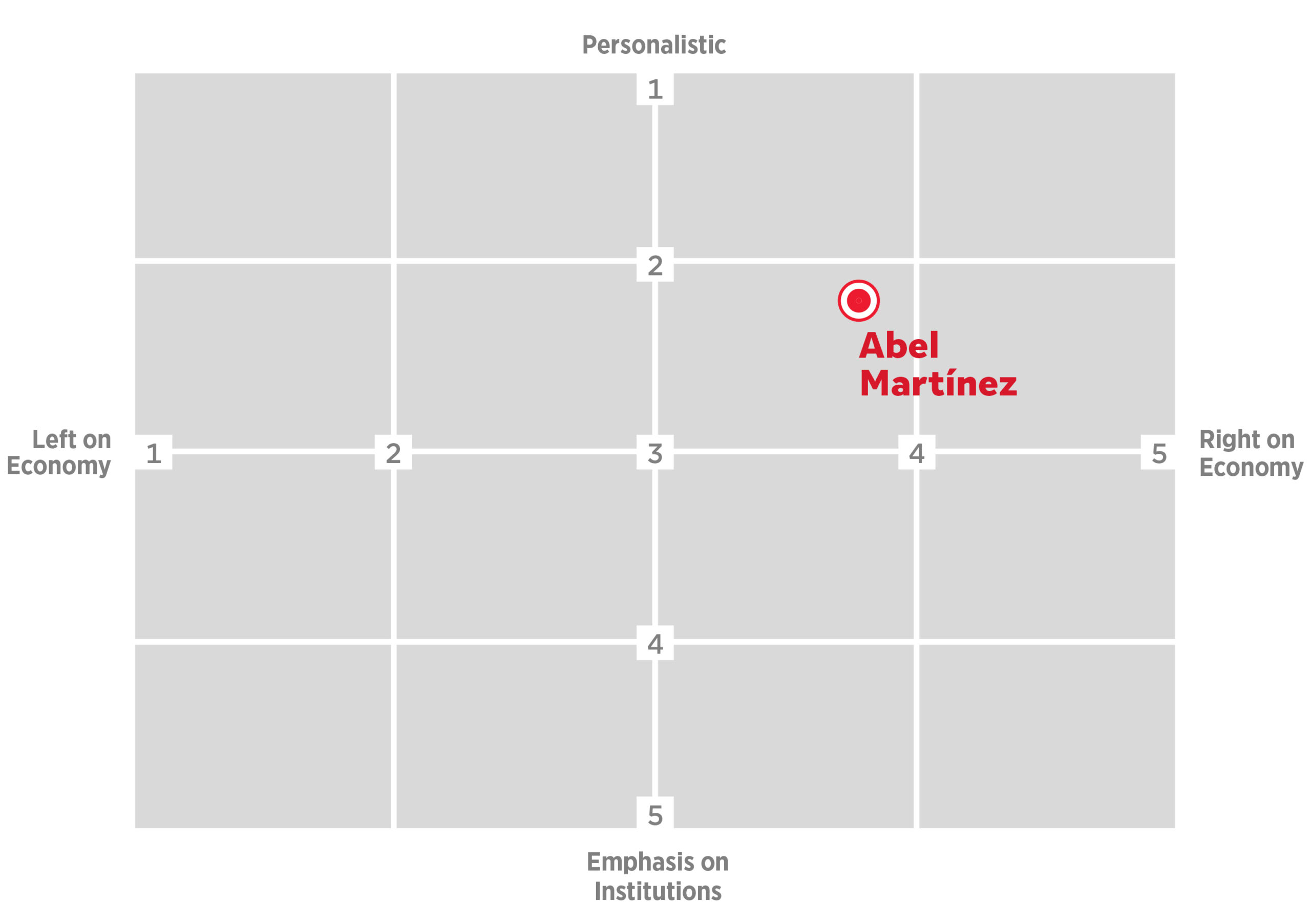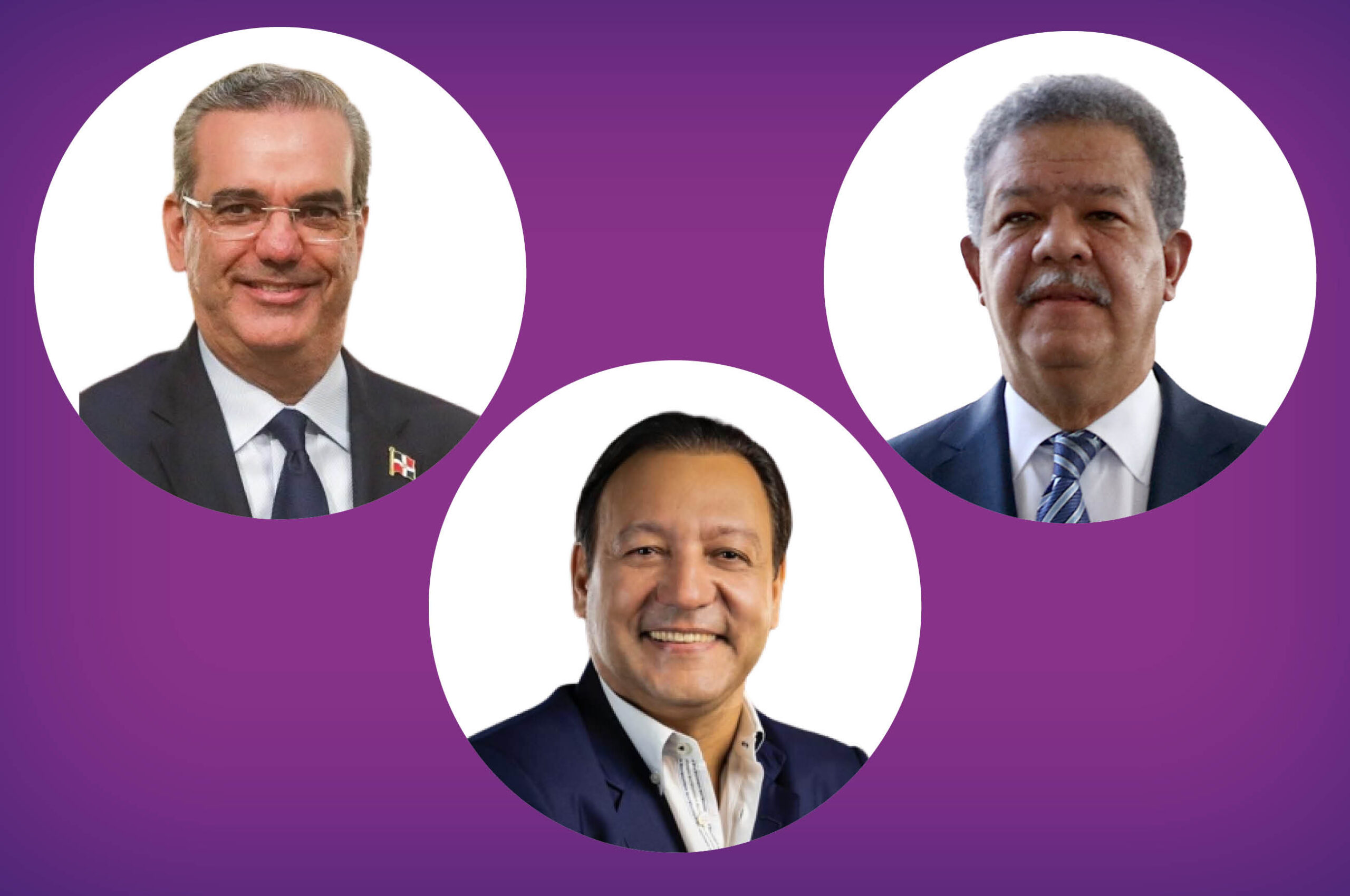This article is adapted from AQ’s special report on Latin America’s election super-cycle
This page was last updated on May 17
The Dominican Republic’s voters will elect a president, vice president, all 62 seats in the Senate and all 190 seats in the Chamber of Deputies on May 19. If no presidential candidate receives over 50% of the vote, a second round will be held on June 30.
This page includes the three leading presidential candidates in May polling from Gallup-RCC Media, listed alphabetically by last name. We will occasionally update this page to reflect developments in the campaigns.
AQ also asked a dozen nonpartisan experts on the Dominican Republic to help us identify where each candidate stands on two spectrums: left versus right on economic matters and a more personalistic leadership style versus an emphasis on institutions. We’ve published the average response with a caveat: Platforms evolve, and so do candidates.
This piece is part of AQ’s ongoing coverage of upcoming elections.
Luis Abinader | Leonel Fernández | Abel Martínez
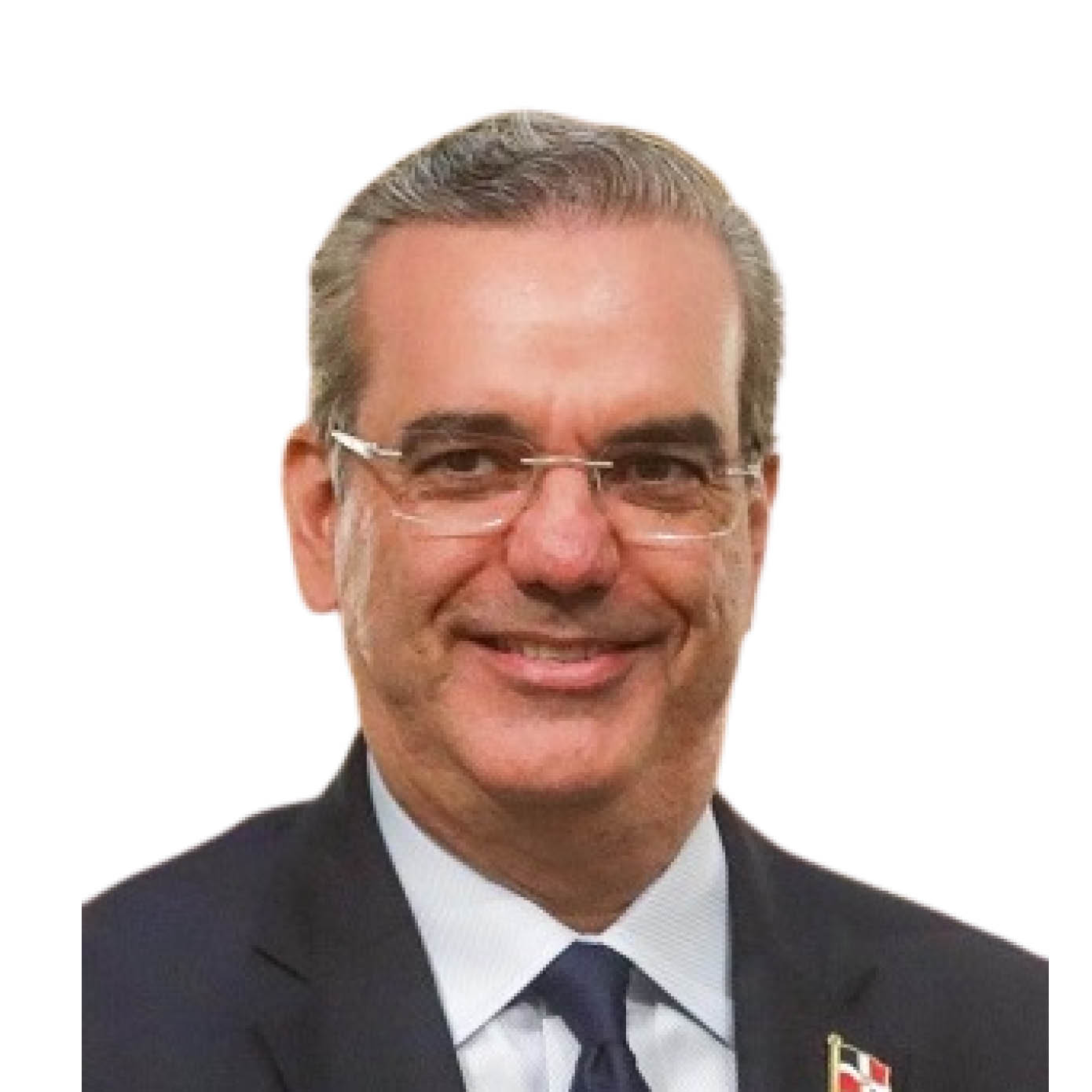
Luis Abinader
56, President
Partido Revolucionario Moderno (PRM)
“The Dominican people are very intelligent and know what is best for them, and they know that today there is a president who does not accept corruption.”
HOW HE GOT HERE
Luis Abinader, a wealthy former businessman with experience in the tourism and construction sectors, is running for president for the third time. In 2016, he placed second with 35% of the vote, and in 2020, he won with 52.5%. Abinader campaigned on an anti-corruption platform, and his victory broke 16 consecutive years in power for the Partido de la Liberación Dominicana (PLD).
WHY HE MIGHT WIN
Abinader has maintained high approval ratings, buoyed by a strong post-COVID economic recovery as his administration kept the country open to tourism. During his term, authorities have undertaken large-scale anti-corruption probes, and in 2022 he signed a landmark asset forfeiture bill into law. Amid a dispute with Haiti over the digging of a canal, Abinader suspended issuing visas to Haitians and temporarily closed the border, moves that have proven popular.
WHY HE MIGHT LOSE
Some observers note that the opposition is more organized today than it was in the run-up to the 2020 presidential election. Abinader’s critics have argued that his administration’s anti-corruption push has focused disproportionately on the PLD.
WHO SUPPORTS HIM
Abinader has broad support, and may secure more backing from higher-income brackets, as well as from voters in the capital, which has been led by PRM mayors since 2016. In the February 18 municipal elections, the PRM presented an alliance of 22 political parties and movements, and candidates from the coalition secured almost 60% of all votes cast.
WHAT HE WOULD DO
The incumbent would continue private sector and tourism development. Abinader has pursued public-private partnerships, such as last year’s contract to turn Puerto Duarte into a cruise terminal. He would likely maintain his stance on Haiti, continuing the construction of a $120 million border wall. Abinader has stated that international assistance is required to address instability in Haiti, and said in March that the Dominican Republic would not halt deportations of undocumented Haitian migrants and would not authorize refugee camps on Dominican territory.
IDEOLOGY
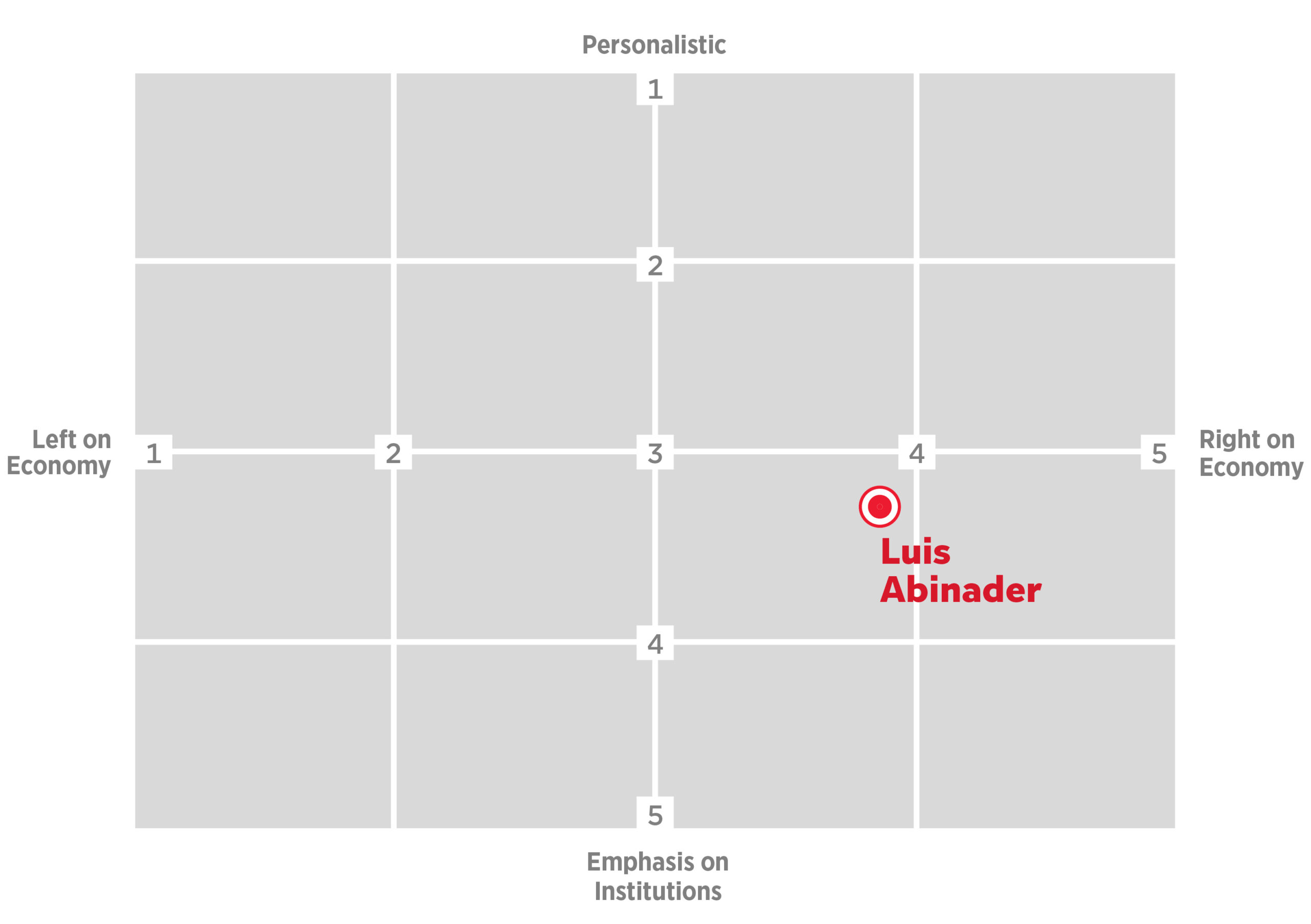
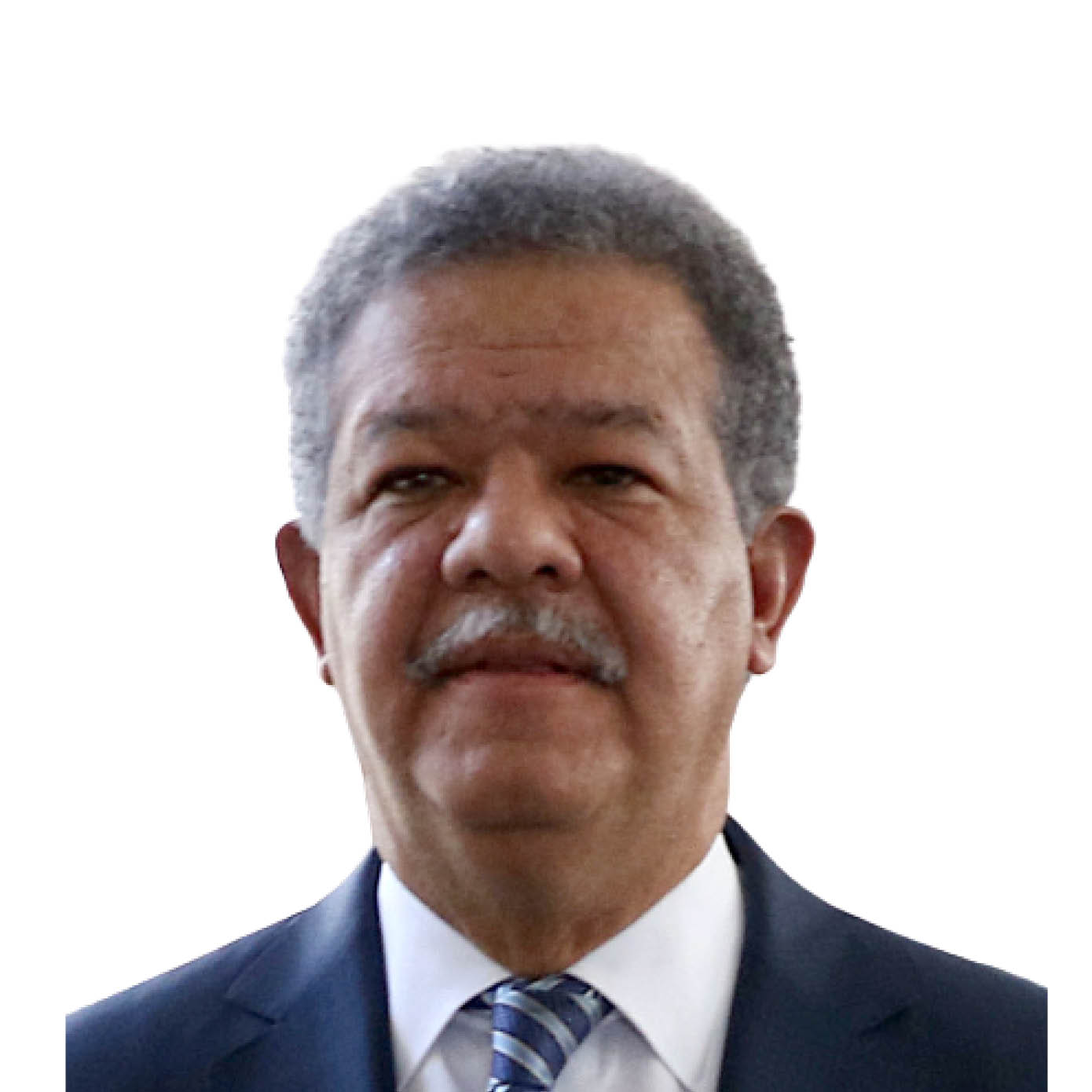
Leonel Fernández
70, former president
Fuerza del Pueblo (FP)
“Our role, that of the Fuerza del Pueblo, has been to rebuild the social base of support and the electoral base that we had in the PLD.”
HOW HE GOT HERE
Fernández served three presidential terms (1996-2000, 2004-08 and 2008-12). He spent part of his childhood in New York, joined the PLD in 1973, and left the party in 2019 after losing its presidential primary, alleging fraud. Later that year, Fernández founded the Fuerza del Pueblo (FP) party, and in the 2020 presidential election, he placed third with 8.9% of the vote.
WHY HE MIGHT WIN
Some voters might recall Fernández as a reformer and modernizer who prioritized infrastructure improvements, such as the metro system in Santo Domingo. If there is a runoff between Abinader and Fernández, the FP candidate will have the backing of other opposition parties. The FP, PLD and Partido Revolucionario Dominicano agreed to support whichever candidate from their alliance makes the runoff.
WHY HE MIGHT LOSE
Younger voters might not remember his terms in office. Those aged 18-30 make up 27% of registered voters. In a March survey from Gallup-RCC Media, 32.4% of respondents said they would never vote for Fernández, compared to Abinader’s 18.8% and Martínez’s 12.6%. In this survey, 47.2% said there was less corruption under Abinader than under Fernández and his successor, Danilo Medina.
WHO SUPPORTS HIM
Despite splitting from the PLD, Fernández has support from some sectors of his old party. FP’s ranks have increased; in mid-2022, the party’s electoral rolls stood at approximately 1 million and reached over 2 million by September 2023.
WHAT HE WOULD DO
Fernández’s platform includes calls for wealth redistribution and social justice, noting the country’s persistent inequality despite sustained economic growth. Infrastructure is on his agenda, along with public safety and environmental protection. Fernández has proposed installing a new United Nations Stabilization Mission in Haiti (MINUSTAH) and ending visa issuances to Haitians to “contain illegal migration.”
IDEOLOGY
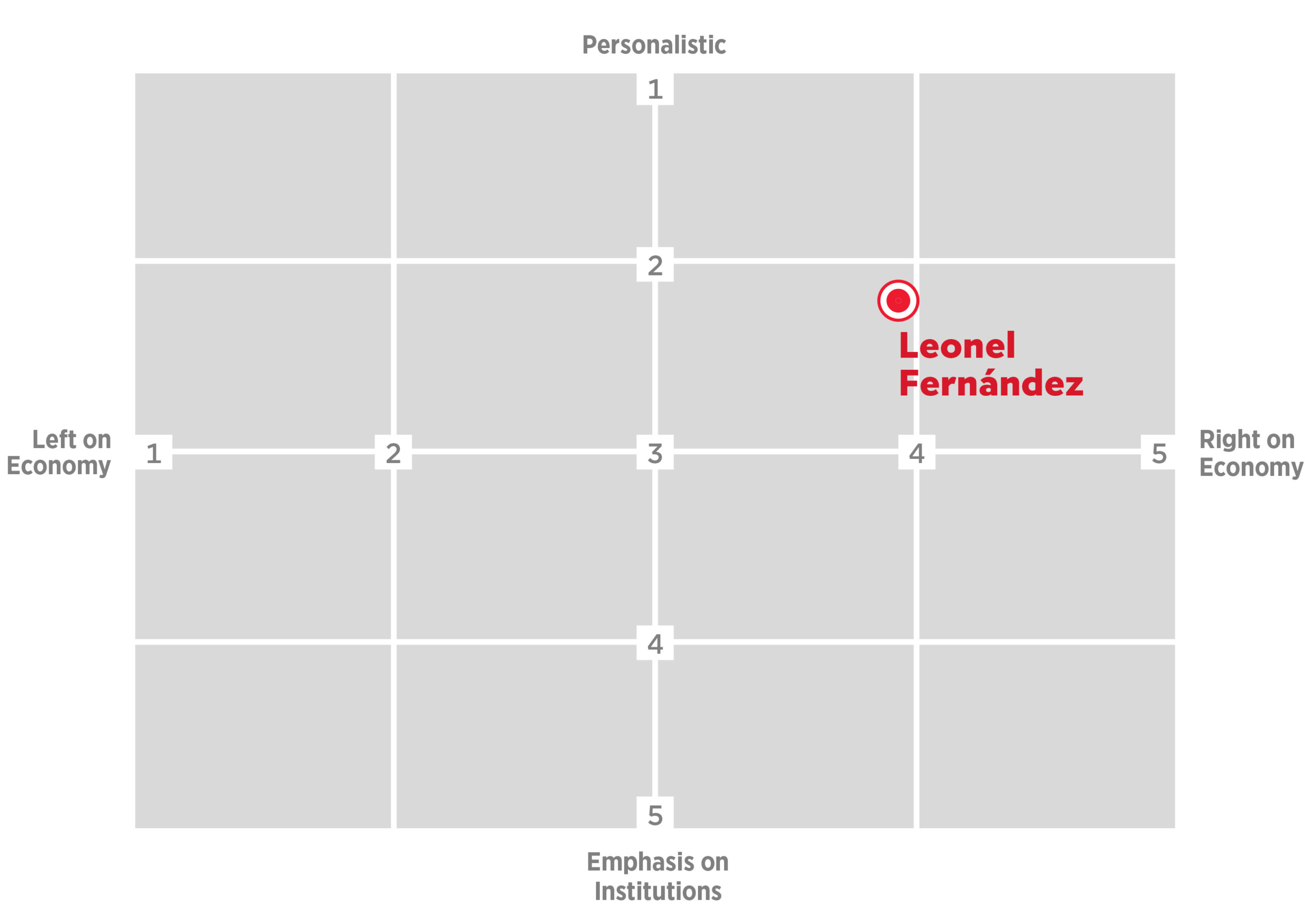

Abel Martínez
52, former mayor of Santiago de los Caballeros
Partido de la Liberación Dominicana (PLD)
“A transformation is needed to bring order to the mess of public services, high prices and crime.”
HOW HE GOT HERE
This is Martínez’s first presidential run. A three-term former congressman, he served as the president of the Chamber of Deputies from 2010-16. In 2016, he was elected mayor of Santiago de los Caballeros, the country’s second-largest city, and was reelected in 2020 (his term concluded in April 2024). Martínez has won five consecutive elections and has been involved in the PLD since the 1990s.
WHY HE MIGHT WIN
The PLD is a well-organized political machine, and Martínez is perceived as an effective manager in his city. He has prioritized sanitation improvements, claiming that Santiago de los Caballeros is the “cleanest” in the country, which has contributed to his popularity. Known as a law-and-order politician, Martínez has called for increased migration control, which has proven popular among some voters.
WHY HE MIGHT LOSE
Martínez is competing against two politicians with executive branch experience. In a May survey from Gallup-RCC media, he reached 11.1 % of voter intention, while Abinader polled at 60% and Fernández polled at 24.6%. In recent years, there have been high-profile corruption probes into individuals associated with the PLD, which may diminish voter support for the party.
WHO SUPPORTS HIM
Martínez will likely find support from residents of Santiago de los Caballeros and those who favor his hardline rhetoric on immigration. He has the backing of fellow PLD member and former President Danilo Medina (2012-20). Like Fernández, he will receive support from an opposition alliance if he makes it to a second round against Abinader.
WHAT HE WOULD DO
Martínez has promised $4 billion in financing for the agricultural sector and a $500 million fund for new agricultural technology. He has presented a tech-focused security plan that provides for the construction of the country’s “first maximum-security prison” and a 24/7 intelligence and surveillance system at the border. Martínez has described the presence of undocumented Haitians in the Dominican Republic as “an overflowing invasion.”
IDEOLOGY
